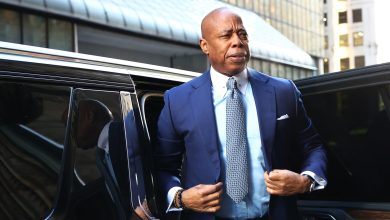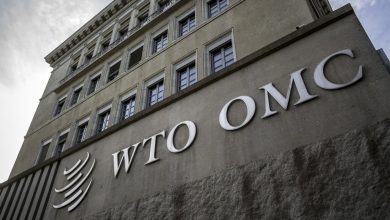Markets see one rate cut this year on fear that tariffs will cue inflation

As investors grow more concerned about tariffs and the impact they could have on inflation, they are lowering their expectations even further for interest rate cuts out of the Fed this year. President Donald Trump is moving quickly to establish duties against the largest U.S. trading partners. Even with tariffs postponed against Canada and Mexico, he has moved forward against China and targeted efforts on steel and aluminum . Economists have warned that a wide-scale trade war could significantly raise prices, and consumers appear to be worried as well. Respondents to the University of Michigan’s closely-followed consumer sentiment poll released Friday indicated they expect inflation to run at a 4.3% rate a year from now, up a full percentage point from the January reading. Concurrently, traders lowered their implied level of interest rate cuts this year to a single quarter-percentage-point move, likely not until June or July, according to CME Group data . Previously, expectations had been for cuts in June and December. “Earlier tariffs and trade policy uncertainty mean upside risk to inflation, raising the hurdle rate for Fed rate cuts,” Michael Gapen, chief U.S. economist at Morgan Stanley, said in a client note Friday. “As a result, we remove our forecasted rate cut for March and leave only one 25bp rate cut this year at the June meeting.” To be sure, sentiment surveys can be volatile, and the University of Michigan results aren’t reflected elsewhere. The New York Fed, in its monthly Survey of Consumer Expectations released Monday , showed the inflation outlook holding steady at 3% for a year from now. While that’s still a good distance from the central bank’s 2% goal, it still reflects a fairly anchored view. Indeed, Goldman Sachs said it expects tariffs to have only a temporary impact on inflation, which it sees returning to the 2% level ultimately, even if delayed some by worries over trade policy. The Wall Street bank sees the biggest danger to tariffs having a “much larger effect” on expectations coming from “media attention far out of proportion to their size.” “The tariffs we expect would have only a moderate and one-time effect that should not prevent inflation from continuing to fall on net,” Goldman economists said in a note.



